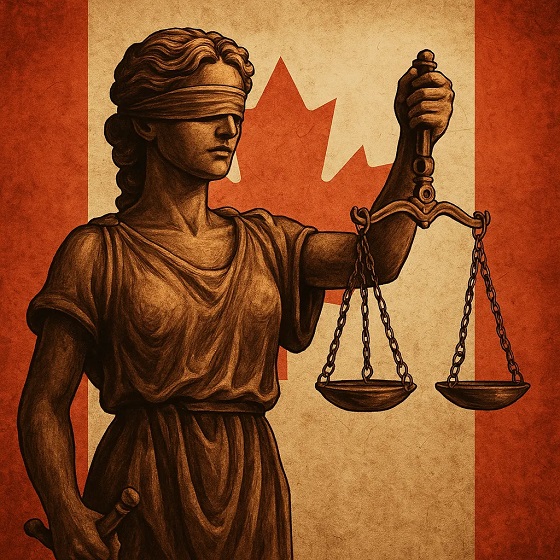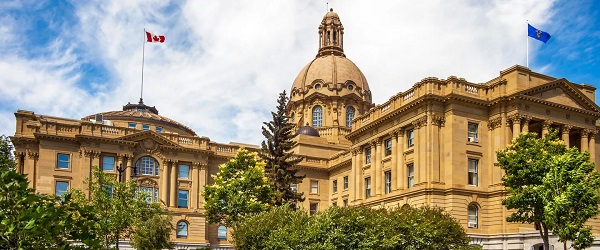Alberta
Province announces new Calgary arena deal

Image from flamesnation.ca
Agreement moves new Calgary arena and event centre forward
Alberta’s government, the City of Calgary and the Calgary Exhibition and Stampede have signed a memorandum of understanding (MOU) to enable construction of a new world-class arena and event centre.
Calgary is growing and its economy has momentum, and the Government of Alberta is committed to investing in the infrastructure necessary to create jobs and improve Calgarians’ quality of life. Alberta’s government is answering the call with this agreement for a new arena and event centre by investing in critical infrastructure to support the new event centre and BMO Convention Centre expansion while revitalizing Calgary’s Rivers District, the Stampede grounds and downtown.
“This new arena and event centre will be at the heart of Calgary’s sports, entertainment and cultural scene for generations, and will result in billions of dollars of economic activity and a higher quality of life for millions of Albertans. The memories experienced here by families and friends will contribute invaluably to the fabric and spirit of this city for decades. Calgary is a vibrant world-class city deserving and in need of world-class facilities. Along with Edmonton’s Rogers Place, Alberta will now have two of the best and most modern event centres in all the world.”
Under the MOU entered into by the province, the provincial government will not be investing in the construction or operation of the arena itself. Those costs will be borne by the city and CSEC pursuant to a separate MOU between those parties. The province will instead contribute up to $300 million, the majority over the next three years, primarily committed to road and bridge construction, LRT connection, site utilities, site reclamation and other supportive infrastructure. These investments will be critical to the development of the entire area, will enhance access to the Stampede grounds and the expanded BMO Convention Centre, and ensure a vibrant downtown and Rivers District.
“One of my first actions as Premier was to publicly encourage all parties to return to the negotiating table and to appoint MLA Ric McIver along with my office’s executive director to work with the city and CSEC to get this deal done in a manner that respected the expectations of provincial taxpayers. Six months later, we have results and I am grateful to the city, CSEC, the Calgary Exhibition and Stampede, MLA McIver and everyone else involved who came together to get this job done. I can’t wait to get the project started.”
As part of the agreement, the province would also partner with the city to build a new 1,000-seat community arena neighbouring the main arena that will serve youth and amateur hockey. The province’s contribution would be up to $30 million.
The province’s commitments in this agreement are subject to cabinet and Treasury Board approval by August 2023.
“This project is another signal to the market that Calgary is making strong investments in its future. The partnership approach we have taken accomplishes two things: we are building an event centre, and we are also creating the public amenities needed within the Rivers District to enhance quality of life for all Calgarians.”
“The Calgary Stampede has enjoyed having the Calgary Flames as a neighbour since they arrived in 1980. We are honoured and excited to be a partner in this development that will contribute to a world-class landscape for our Calgary community. When combined with other developments, both existing and planned, an event centre complex of this magnitude will provide an anchor to attract and host the world in Calgary’s Culture + Entertainment District.”
“We are proud and excited to be part of the group to have established a clear path forward that provides a new home for Calgary’s sports teams; the venue to host A-class concerts and events; and a community gathering place, for many years to come. Thank you to the city, the province and the Stampede for your leadership and for coming together to create an environment of success.”
“Make no mistake, this project is about more than just a single building. It’s fulfilling our vision of a home for culture, sports, and entertainment. It’s a vital investment in our city’s future prosperity, vibrancy and growth. A little over a hundred years and 1.3 million people later, we have a new Big Four – four partners committed to building a community hub that will serve us for generations to come.”
Alberta
Jason Kenney’s Separatist Panic Misses the Point

By Collin May
Time was a former political leader’s expected role was to enjoy retirement in relative obscurity, resisting the urge to wade into political debate. Conservatives generally stick to that tradition. Ralph Klein certainly did after his term ended. Stephen Harper has made no attempt to upstage his successors. Yet former Alberta Premier Jason Kenney can’t seem to help himself.
From the boardroom of Bennett Jones, one of Calgary’s oldest law firms, Kenney recently offered his thoughts on the unspeakable horrors that await the province should it entertain a debate (perhaps even call a referendum) on separating from Canada. While dismissing Alberta separatists as a “perennially angry minority”, Kenney nevertheless declared a vote on separation would “would divide families, divide communities, divide friends for no useful purpose.” Business partnerships, church and community groups, even marriages and families would break apart, he warned, “shredding the social fabric of the province.”
It was a remarkable burst of untethered hyperbole, but it says more about the former premier than it does about the province he once led.
Kenney’s take on the history of Alberta separatism is telling. It’s a 50-year-old “discredited concept,” he said, whose acolytes “couldn’t get elected dogcatcher in this province.” Exhibit A in his analysis was Gordon Kesler, an Alberta rodeo rider and oil company scout who believed independence was the only way to save Alberta from Ottawa’s depredations. In a 1982 byelection, Kesler got himself very much elected as an MLA under the Western Canada Concept banner. He later lost in the general election to Peter Lougheed’s Progressive Conservatives, but Lougheed did not belittle Albertans for entertaining separatist notions. Instead, he asked for a mandate to fight Ottawa more effectively — and got it.
Kenney, by contrast, ridicules separatists while simultaneously painting them as an existential menace. Worse, he likens them to followers of Vladimir Putin and (perhaps even worse?) Donald Trump. “[I]f you just follow them on social media,” he claimed, one will quickly see that they cheered on Putin’s attack on Ukraine and Trump’s threat of making Canada the 51 st state.
Kenney’s latest intervention fits a pattern. As premier from 2019 to 2022, he could not resist trying to stamp out dissent. During the pandemic, he alienated political allies by dismissing their concerns about mandatory vaccines with contempt. He saw his ouster as UCP leader as the result of a Trumpian-inspired or “MAGA” campaign. UCP party faithful, however, said their rejection of him had far more to do with his top-down leadership style and habit of “blaming other people for the errors he made.”
What’s especially striking about Kenney’s separatist obsession is that he seems to understand as little about Albertans now as he did while premier. Albertans have long debated separation without the province descending into chaos. When Kesler won his seat, people talked about separation, argued its pros and cons, but couples were not running to their divorce lawyers over the issue and business partners were not at each other’s throats.
And there are legitimate reasons for concern about Canada’s social and political structure, as well as the role provinces play in that structure. Canada’s institutions operate largely on an old colonial model that concentrates power in the original population centre of southern Ontario and Quebec. This has not, and does not, make for great national cohesion or political participation. Instead, it feeds constant fuel to separatist fires.
The current threat to Canadian identity comes as well from the ideological commitments of our federal government. Early in his time as Prime Minister, Justin Trudeau declared Canada to be a “post-national” state. This sort of moniker is consistent with the popularly-designated woke doctrine that eschews the liberal nation-state, democratic procedures and individual freedom in favour of tribalist narratives and identity politics.
The obsession with post-nation-state policies has initiated the dissolution of the Canadian nation regardless of whether Quebeckers or Albertans actually vote for separation. We are all becoming de facto separatists within a dissolving Canada, a drift that current Prime Minister Mark Carney’s ineffective “elbows up” attitude has done nothing to reverse.
Kenney’s panicked musings about Alberta separatists would have us believe the province need only continue the fight for a better deal within the Canadian federation. Kenney pursued just such a policy, and failed signally to deliver. For too many Albertans today, his advice does not reflect the political reality on the ground nor appreciate the worrying trends within Canadian institutions and among our political class.
Kenney likes to associate himself with Edmund Burke, the father of conservatism and defender of venerable institutions. But Burke was known as much in his day for his sympathies with the American revolutionaries and their creation of an experimental new republic as he was for his contempt towards the French Revolution and its Reign of Terror. Burke’s conservatism still linked real actions with true words. It would be advisable, perhaps, to keep our own political language here in Alberta within the bounds of the plausible rather than fly off into the fanciful.
The original, full-length version of this article was recently published in C2C Journal.
Collin May is a lawyer, adjunct lecturer in community health sciences with the Cumming School of Medicine at the University of Calgary, and the author of a number of articles and reviews on the psychology, social theory and philosophy of cancel culture.
Alberta
Alberta puts pressure on the federal government’s euthanasia regime

From LifeSiteNews
Premier Danielle Smith is following through on a promise to address growing concerns with Canada’s euthanasia regime.
Alberta Premier Danielle Smith has sent a mandate letter to Justice Minister Mickey Amery directing him to draft and introduce new legislation on euthanasia to ensure better oversight of so-called “medical aid in dying,” or “MAiD” and to prohibit it for those suffering solely from mental illness.
In December of last year, Smith’s United Conservative government indicated that they would seek to address growing concerns with Canada’s euthanasia regime. Mainstream media outlets attacked the move, with the CBC actually reporting that: “Some are concerned new limitations could impact already vulnerable Albertans.”
Premier Smith has now followed through on that promise. The September 25 mandate letter, which lays out directives on a wide range of issues, calls for the justice minister to take steps to protect vulnerable Albertans suffering from mental illness:
As lead, work with relevant ministries to introduce legislation to provide greater oversight and appropriate safeguards for medical assistance in dying and prohibit medical assistance in dying where a person seeks this procedure based solely on a mental illness.
In an email to the CBC, Amery stated that while euthanasia law is under federal jurisdiction, healthcare falls under provincial jurisdiction. The CBC falsely claimed that mental illness “has never been an approved sole eligibility factor for MAID, though the government has considered permitting it.” In fact, the Trudeau government passed Bill C-7, which legalized MAID for those struggling with mental illness, in 2021.
That eligibility expansion has been delayed twice—in 2023 and 2024—and is now slated to come into effect in 2027. Despite those delays, Bill C-7 is still law. MP Tamara Jansen and MP Andrew Lawton are currently championing Bill C-218, the “Right to Recover Act,” which would reverse this and make it illegal to offer or perpetrate euthanasia on someone struggling solely with mental illness.
The CBC’s coverage of this move was predictably repulsive. In addition to their disinformation on euthanasia for mental illness, they reported that “Smith’s letter directing new provincial legislation on MAID comes almost a year after the government surveyed just under 20,000 Albertans on whether they think the province should step in. Nearly half of those surveyed disagreed with putting in more guardrails on MAID decisions.”
“Nearly half” is an unbelievably deceitful way of reporting on those results. In fact, 62% were in favor of legislation for a dedicated agency monitoring euthanasia processes; 55% were in favor of a MAID dispute mechanism allowing families or eligible others to challenge decisions to protect vulnerable people, such as those with disabilities or mental health struggles; and 67% supported restricting euthanasia to those with physical illnesses rather than mental illnesses. The CBC did not report on a single one of those numbers.
Provincial legislation to protect people with mental illnesses is badly needed, although I pray that by the time Justice Minister Amery gets around to drafting it, the Right to Recover Act will be passed in Parliament, and provincial action will be unnecessary. In the meantime, it is increasingly clear that much of Canada’s mainstream press coverage of this issue actively threatens the lives of the suicidal and those struggling with mental illnesses. If their dishonesty and attempts and manufacturing consent were not so routine, they would be breathtaking.
-

 Artificial Intelligence1 day ago
Artificial Intelligence1 day agoThe App That Pays You to Give Away Your Voice
-

 Health1 day ago
Health1 day agoThe Religious Faith in Vaccines has been Challenged, Forcing New Studies and More Rigorous Standards
-

 Agriculture5 hours ago
Agriculture5 hours agoCarney’s nation-building plan forgets food
-

 Fraser Institute6 hours ago
Fraser Institute6 hours agoAboriginal rights now more constitutionally powerful than any Charter right
-

 Alberta7 hours ago
Alberta7 hours agoAlberta puts pressure on the federal government’s euthanasia regime
-

 Censorship Industrial Complex2 days ago
Censorship Industrial Complex2 days agoBill C-9 and the Tyranny of Feeling Heading Straight for Canadians
-

 Red Deer9 hours ago
Red Deer9 hours agoThe City or Red Deer Financial Troubles: The Role of Good Governance, Effective Policies and Key Performance Metrics.
-

 Health2 days ago
Health2 days agoDisabled man needs help as hospital continues to pressure him with assisted suicide







